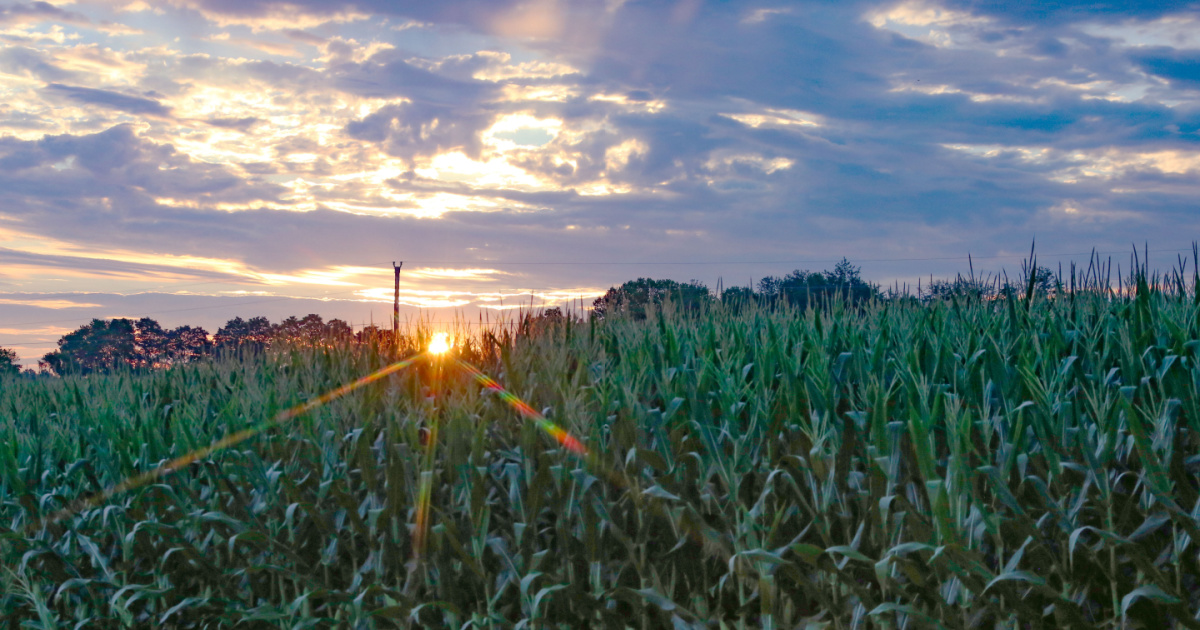Making the Case for Crop Insurance
Posted on Sep 18, 2023With the deadline for reauthorization of a new Farm Bill approaching,
advocacy efforts are more important than ever.
Pilot Oak, Kentucky is a very small community in southern Graves County. And while it may seem like a different world there from the hustle and bustle of Washington, D.C., the looming deadline to pass the next Farm Bill draws the two places closer than ever as farm families in this community and thousands of others advocate for programs contained in this legislation.
Kentucky Farm Bureau (KFB) President Mark Haney said those advocacy efforts are key when it comes to keeping all legislators apprised of Farm Bill programs that help keep farms in business.
“This bill is the most important piece of legislation for the agriculture industry and our rural communities,” he said. “Not only does it provide guidance and assistance in numerous farm-related programs, but it also supplies the necessary safety nets farm families need in the event of natural disasters and/or volatile market swings.”
No one knows better about the issues that can affect crop production, and the need for those safety nets, than Keith Lowry, a sixth-generation farmer from Graves County and Pilot Oak resident.
The last two growing seasons have been marred with weather-related occurrences that have taken their toll on his and many of his neighbor’s crops. In 2021, high temperatures and drought conditions arose at a critical time, causing tremendous damage to his corn crop. This was followed by losses to his soybean crop in 2023 from a record rainfall event that caused flooding in many areas of the county.
“While we did experience a historic rain event this year, typically our losses come in droughts,” he said. “Last year, some of my corn yields were 32 bushels and we averaged 72 bushels. Our normal average would be about 180 to 185.”
With those kinds of losses, crop insurance becomes a necessity for farmers and is a key title in the muti-titled Farm Bill.
“The most important tool that I have in my farming operation today is not my tractors, it’s not my combines, nor my trucks,” Lowry said. “The most important tool nowadays in my farming operation, and in most farming operations, is my crop insurance policy.”
R.J. Layher, a Director of Government Affairs with the American Farm Bureau Federation (AFBF) said crop insurance is the cornerstone of the farm safety net.
“We need to make sure that crop insurance is not only protected but also that changes are made to expand to producers who don’t have proper risk management tools,” he said. “With specialty crops or high-value low-acre crops, (crop insurance) is not very attractive because it's so expensive.”
With a more than $1 trillion price tag expectation for the upcoming Farm Bill, Layher said that money will be tight.
“We need to make sure that we have an actuarially-sound product that's going to be a benefit not only to the producer but the taxpayer, as well,” he said.
With more than 260 members of Congress who have never voted on a Farm Bill, advocacy becomes critical when getting or keeping the needed programs and funding for this legislation, KFB First Vice President Eddie Melton emphasized.
“No one said this Farm Bill would be easy to get across the finish line, especially when the subject of funding has come up,” he said. “But it is very important to let our Congressional leaders know what we need in our efforts to stay on the farm.”
Melton, a grain and cattle producer from Webster County, heads up the KFB Farm Bill Committee efforts. He pointed out that other states don’t have the support Kentucky agriculture does at the federal level.
“Our Congressional delegation is second to none when it comes to supporting our farm families and understanding the issues we face on the farm,” he said. “And we depend on them greatly to help their non-farm legislative cohorts understand the importance of the bill.”
Layher said it takes both the rural and urban Congressional members to get the Farm Bill passed and passed in a timely fashion.
“We need to have those legislators in Kentucky reach out and talk to the new legislators,” he said. “Historically, in passing a farm bill, we’ve had a rural and urban coalition that comes together to get this done, and we need that rural-urban coalition to come together again.”
Lowry credits his crop insurance agents for the work they do each year to ensure he has adequate coverage (80 percent) on his crops., something he said helps to cover costs in the event of a claim. But he also gives Farm Bureau accolades for continuing to advocate for a strong Farm Bill and the safety nets contained in the legislation.
“I'm very proud to say, as an American farmer, we produce the most abundant and safest food supply in the world, but we need tools like crop insurance to keep us in business,” he said. “Farm Bureau helps us keep that message out there and the organization can convey our message because they are well-respected in Washington and Frankfort. They’re another tool in our toolbox.”
Lowry said tradition has a lot to do with him being a fifth-generation farmer and he wants to pass it on to his children and grandchildren.
“I'll be the first to tell you, and I'm sure any other farmer would tell you, that I wouldn't be where I'm at today if it wasn't for my daddy and my granddaddy and even my great-granddad,” he said. “I hope to leave a little bit of that legacy with my grandsons and sons to carry on.”
Photo caption 1623: Keith Lowry inspects some of his corn crop after a storm moved through the area.
Photo caption 1537: Growing seasons are sometimes marred with weather-related occurrences that take their toll on crops making crop insurance all that much more important.

Comments